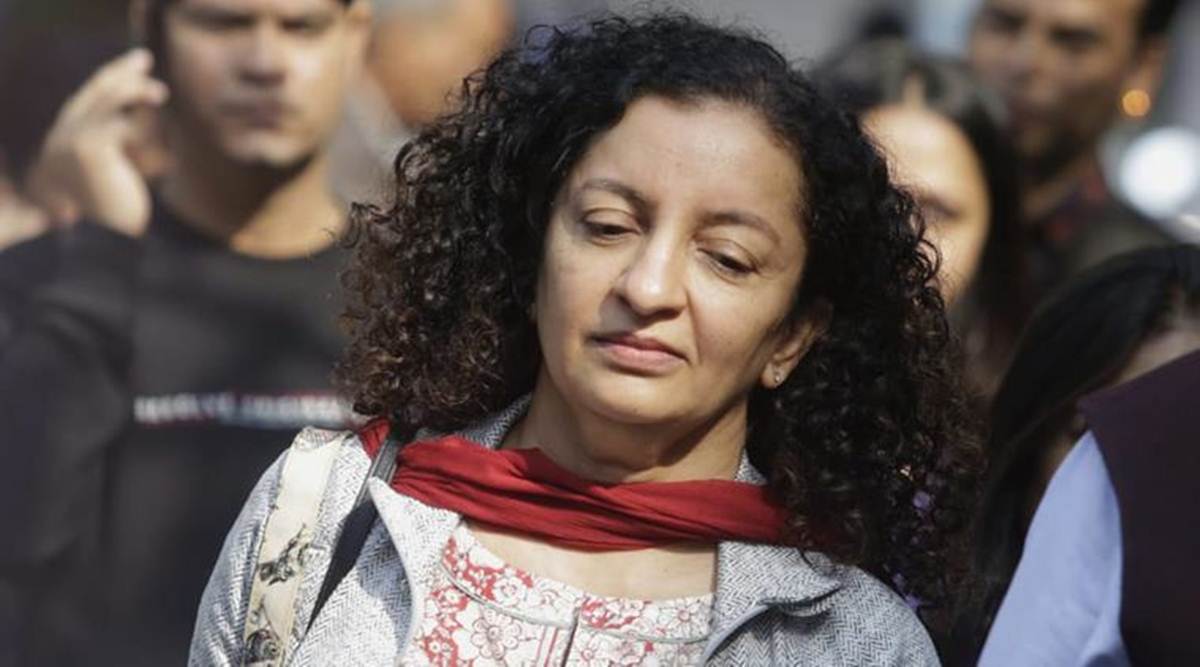 Ramani had last year levelled allegations of sexual misconduct and harassment against Akbar, who subsequently resigned from the Union cabinet and filed the defamation case. (File)
Ramani had last year levelled allegations of sexual misconduct and harassment against Akbar, who subsequently resigned from the Union cabinet and filed the defamation case. (File)Rebutting journalist Priya Ramani’s final arguments, former Union minister M J Akbar on Tuesday told a Delhi court through his lawyer that Ramani could not discharge her duty of proving that her statements were made for public good.
Stating that the burden of “proving the existence of truth, good faith, public interest and public good is on the accused”, senior advocate Geeta Luthra made her rebuttal on behalf of Akbar: “The accused did not discharge this burden. The accused hasn’t shown due care and caution. The courts have set an extremely high standard for due care and caution. You can’t tarnish a person’s reputation just like this. You have to show that what you said was not reckless, was not careless, was with due care and caution, and was the statement of a responsible person.”
Ramani had levelled allegations of sexual misconduct and harassment against Akbar, who sued her and resigned from the Union Council of Ministers in 2018.
On previous dates, Ramani’s lawyer, senior advocate Rebecca John, had told the court that Ramani deserves to be acquitted since she has been “able to show the truth and public good of her statements made in public domain”.
Luthra’s rebuttal could not be completed on Tuesday and will be heard on Wednesday.
On John’s argument that the entire article in ‘Vogue’ written by Ramani was not on Akbar, Luthra told the court of Additional Chief Metropolitan Magistrate Vishal Pahuja: “Read the article. I read it as an entire article; everybody reads it as an entire article. How will a common man read this? He also sees it as an entire article.”
Luthra also told the court that for some people reputation is more important than their own lives: “There is an expression; in fact, it is perhaps even in the Constitution bench judgment by the Supreme Court upholding criminal defamation that for some people reputation is more important than one’s life itself…. It is true for someone who, step by step from the 1960s, has worked hard to build his reputation…no one had ever cast any aspersion on him…. I think when the accused was cross-examined, she had said that there was nothing said ever till 8 October. It is then that my reputation got affected, which got built over years (and) cannot be tarnished like that.”
Luthra told the court that the allegations made against Akbar were not put “in the court’s space”. She argued, “What I find most offensive is you put it in public space, where I have no opportunity to answer unless I get into a slanging match. You put it on Twitter.”
At one point, Luthra also told the court that she is not concerned about Ramani’s reputation.
“At some point, my colleague appearing for the accused also pointed out that the accused also has a reputation. I am not concerned. That is not the subject matter of this list…it is a wholly immaterial fact and not a matter which is a matter of argument. We were not going into her reputation. We are not concerned with it. We are concerned with Mr Akbar’s reputation,” she said.
Reiterating from her final arguments that calling someone a predator is per se defamatory, Luthra told the court, “What does she call him? Media’s biggest predator on what basis? What is the due care and caution?…Are you doing something for public good? Are you doing it for some other vengeance? And an incorrect statement which she doesn’t correct…saying that you don’t apologise on Twitter.
“Making an apology for saying something that was wrong doesn’t make you a lesser person but definitely shows your scant regard for truth.”